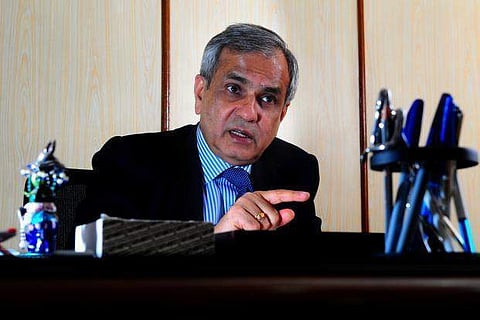

NEW DELHI: Niti Aayog Vice Chairman Rajiv Kumar Sunday said the vision of 'healthcare for all' has become a reality with the launch of Pradhan Mantri Jan Arogya Yojana (PMJAY), world's largest fully government-funded health insurance programme.
Prime Minister Narendra Modi rolled out the Pradhan Mantri Jan Arogya Yojana-Ayushman Bharat from Ranchi, and termed it a "game-changer initiative to serve the poor".
Under the programme, a cover of up to Rs 5 lakh per family per year, for secondary and tertiary care hospitalisation.
Over 10.74 crore vulnerable entitled families (approximately 50 crore beneficiaries) will be eligible for these benefits.
"The Hon'ble Prime Minister's vision of #HealthcareForAll becomes a reality with the launch of Pradhan Mantri Jan Arogya Yojana, world's largest fully government-funded health insurance programme," Kumar said in a tweet.
Commenting on the launch, Prathap C Reddy, chairman, Apollo Hospitals, said this scheme is for the greater public good.
"While we all work together to ensure the success of this scheme, there are areas that need focus and fine tuning," he said.
Ensuring the robustness of the IT backbone, weeding out potential fraud, ensuring coverage to only identified beneficiaries and ensuring more adoption by the private sector, who are rightly worried about the pricing and reimbursements, must remain paramount moving forward, Reddy added.
Anupama Joshi, Partner, Deloitte India, said as the scheme has been launched, it is expected to create additional hospital infrastructure by private sector and NGO's in areas where health facilities offering even secondary healthcare were non-existent.
For the success of this scheme, clinical staff - doctors, nurses - supply is required.
Other skills required should be available/will need to be developed locally through training etc.
in areas where the Healthcare infrastructure is getting created, Joshi said.